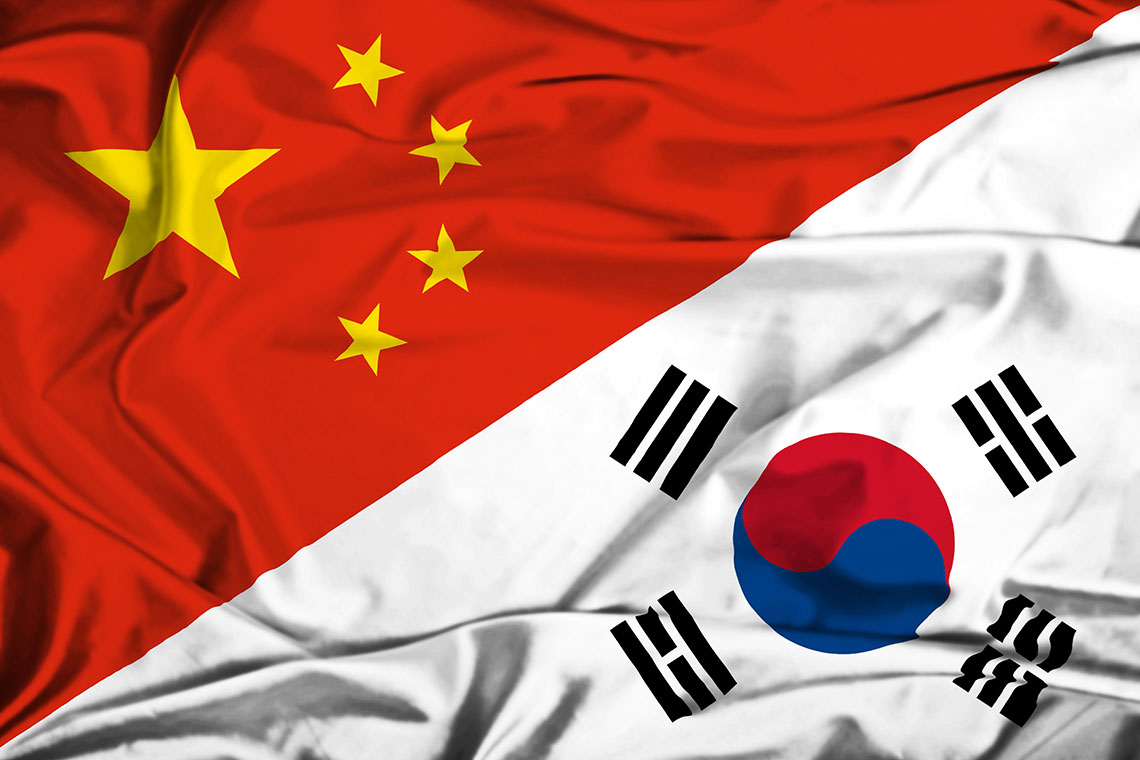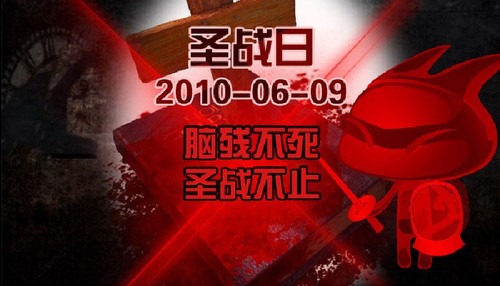Anti-Korean sentiment in China: A brief history of recent events
From football fields to a K-pop “holy war,” China has its reasons for resenting its small northeastern neighbor. The row over the THAAD missile defense system has brought those feelings back to the fore.

China has made clear what it thinks of THAAD. Since South Korea made the decision to deploy the U.S.-backed Terminal High Altitude Area Defense missile defense system last July, the Chinese government has reportedly taken more than 40 retaliatory actions to unleash its anger — including expelling Korean missionaries from the country and canceling concerts by Korean musicians.
South Korea, of course, asserts that the precautions are necessary to counter North Korea’s increasing military aggression. The recent land deal, in which the South Korean conglomerate Lotte agreed to give up a golf course to host THAAD installations, has escalated the tit-for-tat to a new level. China’s tourism administration banned travel agencies from organizing group tours to South Korea, one of the most popular overseas destinations for Chinese tourists. On Chinese online streaming platforms, South Korean entertainment is no longer available.
The Chinese masses have also taken up the cudgel. Anti-Korean sentiment appears to have reached a pinnacle — hating China’s small northeastern neighbor has become the latest viral trend to sweep the country. Unlike more conventional approaches that the Chinese have taken to protest other countries’ actions — including burning national flags, smashing foreign-made cars, marching in the streets — the boycotts this time are taking on more innovative forms.
Some demonstrations have involved song and dance. In front of a Lotte market in Jilin, a group of “dancing aunties” showed off their moves while holding up a banner that told Lotte to “get out of China.” Meanwhile, a Chinese pop singer released a song titled “Chant of Love,” calling Chinese citizens to boycott Lotte products. On Monday, a video posted on Kuaishou, the most popular Chinese live-streaming site, shows a female shopper wrecking a variety of products in a Lotte store and then placing them back on the shelves in their damaged condition.

History of animosity
The wide-reaching anger has caught many by surprise. Some observers believe the backlash is isolated to the current disagreement over THAAD, and fanned by the notorious 50 Cent Party, the squadron of internet vigilantes supposedly paid by Chinese authorities to spread Party propaganda. In fact, Chinese citizens have a history of animosity toward their South Korean neighbors, and from time to time, they have translated that resentment into collective action.
The hostility between the two East Asian nations can be traced back to the start of the Korean War in 1950, when the Chinese Community Party sent the People’s Volunteer Army to fight alongside North Korean troops in the invasion of South Korea. The war concluded in 1953 with an armistice that separated South and North Korea, and created a long-lasting stalemate between China and South Korea. In the global cold war that followed, South Korea drew increasingly closer to the United States, which China interprets as a threat to its position in the Asia-Pacific region.
These sentiments have been expressed in Chinese nicknames for South Korea, many of which you won’t find uttered in diplomatic circles. The most widely used nickname is “Korean bumpkin” (高丽棒子 gāolì bàngzǐ), a combination of Goryeo (高丽 gāolì), a Korean ruling dynasty (918–1392), and “stick” or “corn cob” (棒子 bàngzǐ). A milder one is “kimchi nation” (泡菜国 pào cài guó): Used in context, it implies that kimchi is the only innovation that South Koreans can feel proud of.
K-pop’s holy war
It is hard to deny, though, the influence of South Korean pop culture. China hosts a massive fan base for Hanliu (韩流 hánliú), a blanket term describing the wave of Korean music, dramas, and variety shows that have captivated Chinese audiences. Millions of Chinese fans are addicted to Korean soap operas and Korean boy bands, but sometimes the passion goes wrong:
In May 2010, the K-pop group Super Junior was invited to the Shanghai World Expo by the Korean Pavilion. Before the show, organizers promised to give out 5,000 free tickets at the venue, failing to mention that many of the tickets were reserved for a Korean audience. A huge crowd waited in line for hours. When they realized that there weren’t enough tickets to go around, physical clashes broke out, with police and Expo volunteers trying desperately to maintain order.

When internet users found out about the chaos, they labeled the fans “brain damaged” (脑残 nǎocán). On the night of the show, Super Junior’s website was hacked, with the culprits demanding that the group’s fans apologize to the police and volunteers. The fans refused. Instead, they swarmed to the website of the Korean Pavilion and apologized to their beloved K-pop group for the hack.
This dispute between nationalist Chinese hackers and Super Junior die-hards eventually resulted in the “69 Holy War” (圣战69 shèngzhàn liùjiǔ) on June 9, 2010. Under the slogan “The war will never end until those brain-damaged people stop” (脑残不止, 圣战不休 nǎocán bùzhǐ, shèngzhàn bùxiū), more than 100,000 internet users flooded various online forums with comments cursing out fans, Super Junior, and South Koreans in general. During the attacks, prominent Chinese blogger Han Han 韩寒 posted an article (in Chinese) titled “I hate you for no reason” (莫名, 我就仇恨你 mòmíng, wǒ jiù chóuhèn nǐ). “The holy war is actually adults bullying kids,” he wrote. “To be honest, I feel ashamed for both sides.”
Fearing South Korea on the soccer field

Tensions have extended to the football field. Chinese soccer fans may have swallowed their pride about losing to the world-class teams of the West, but they have long relished the prospect of handing their South Korean adversaries an on-field defeat. The reality, however, has been disappointing. Beginning in 1978, the Chinese national football team lost 28 consecutive matches against the South Korean national football team until the streak ended in 2010.
After the Chinese national team lost a friendly match with South Korea in Beijing in 2000, several South Korean spectators were assaulted by their Chinese counterparts. In 2014, Chinese spectators resorted to violence again, this time during an Athens Olympics football preliminary match held in Changsha. One Korean spectator was injured amid the chaos.
Losing to South Korea has become so familiar that the Chinese have even coined a term to capture the feeling of unease before yet another face-off: Koreaphobia (恐韩症 kǒng hán zhèng), meaning, literally, the syndrome of fearing South Korea.
A thief of Chinese culture
For Chinese who aren’t sports fans, there have been other reasons for grudge bearing. In 2005, UNESCO identified South Korea’s Gangneung Danoje Festival as a masterpiece of cultural heritage, despite Chinese claims that the festival derived from China’s own Duanwu Festival (端午节 Duānwǔjié), or Dragon Boat Festival, and that the distinction should be shared.
Similar quarrels have created the perception among Chinese citizens that South Korea is a cultural thief. In 2007, Chinese media reported unverified claims that South Korea was attempting to register Chinese characters as a Korean innovation at UNESCO. According to Chinese reports, other eyebrow-raising applications for registration as Korean heritage include Korean traditional medicine (which is based on Chinese traditional medicine) and feng shui.
To ridicule South Korea’s unusual enthusiasm for registering various UNESCO heritages under its name, Chinese internet users often responded with sentences — of course, making use of the diminutive “stick” nickname for South Koreans — like “The universe is created by South Korea” (宇宙是棒子创造的 yǔzhòu shì bàngzi chuàngzào de) and “The world belongs to South Korea” (世界是棒子的 shìjiè shì bàngzi de).

The THAAD dispute is still unfolding, and it will very likely dominate headlines in the months to come. But for many Chinese citizens, in the end, it just serves as another explosive outlet for a prejudice against Koreans that existed long before news of the missile defense system first broke.






